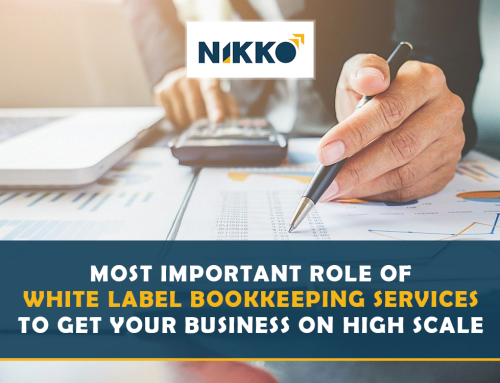Businesses always look for new and improved ways to streamline operations, cut costs, and boost productivity in today’s fast-paced and intensely competitive business environment. Using white-label accounting and service providers is one option that has grown in favor lately. This innovative concept is revolutionary for businesses looking to outsource their bookkeeping and finance work yet concerned about maintaining their clientele’s trust.
These days, a wide range of service businesses heavily utilize this approach, including marketing and software development and accountancy. In recent years, the F&A Process flow has seen an increase in outsourcing. Businesses are turning to specialists to handle non-core jobs to remain competitive. This site is a treasure trove of knowledge for entrepreneurs looking to optimize their financial operations or simply learn more about the most recent advancements in the sector.
What are White Label Accounting Solutions?
When a company provides financial and accounting services to another, it “white labels” those services by reselling and offering them under the name and logo of the original company.
It’s a kind of outsourcing when a business pays another to handle accounting tasks on its behalf “in-house” while giving the impression that the work was done in-house. Numerous financial services, such as white label bookkeeping, payroll processing, tax preparation, financial analysis, and more, benefit from this method.
The client is relieved of the burden of obtaining the internal knowledge, assets, and infrastructure required to deliver the service because the service provider handles most of the grunt work.
The Principal Entities in White Label Bookkeeping Services
The three key players in the dynamic triangle of white label accounting solutions are the provider, the reseller, and the client. Together, these companies create a white label accounting system that benefits everyone.
1. The supplier of services:
Their primary duty is to provide top-notch accounting services that other companies can pass off as their own. The following are the responsibilities of the service provider:
● Proficiency and Performance: They have a wealth of expertise in accounting, taxation, financial analysis, and related support services. They fulfill expectations and provide this service with accuracy.
● Infrastructure and Tools: To provide financial and accounting services efficiently, service providers must invest in hardware, software, and other technological requirements.
● Customization: Resellers can alter the services’ features, look, and branding to better meet the needs of their companies.
● Quality Control: They uphold strict guidelines and guarantee industry rules and standards adherence.
2. The Reseller:
Because it lacks internal resources and knowledge and needs accounting and financial services, the reseller often establishes a connection with the service provider.
The reseller is the “official” service supplier and deals directly with clients. Their duties include meeting their expectations and giving them a sense of importance.
3. The End Client:
Long-term, white-label accounting services are advantageous to the client. Instead of going through the service provider, clients go to the reseller for accounting and financial help.
Why do businesses choose White Label Accounting Services?
For various reasons, white label accounting solutions are increasingly becoming popular among companies of all sizes and across all industries.
1. Reduced expenses and enhanced output
Maintaining an internal accounting team could be costly. White label bookkeeping software provides cost savings for firms. Due to economies of scale, service providers can charge their clients less for accounting services.
Businesses can better invest in improved financial services with more capital available.
2. The availability of specialized information and assistance
Regulations about finance and accounting are intricate and constantly changing. Any company that wishes to keep its financial processes precise, compliant, and current must have access to expert information.
White label bookkeeping service providers bring a plethora of expertise, covering topics like financial planning, tax laws, and accounting standards.
3. Scalability and flexibility
As a business expands, its financial requirements will also shift. It may be difficult for internal accounting departments to adjust to these changes. White-label accounting services, on the other hand, are adaptable and scalable.
Businesses can feel secure knowing that their accounting service providers can adapt to their needs.
4. Consider Your Core Competencies
Many firms lack the necessary tools to manage accounting and finance functions. White-label accounting allows businesses to delegate financial management to professionals while concentrating on their primary skills.
Obstacles to Consider
While white label bookkeeping offers many advantages, you must be prepared to deal with potential complications.
1. Influence decline
Financial instability is a leading cause of business failure. Given the stakes involved in the financial data, it’s understandable why a company would be wary about outsourcing its accounting.
1. Communicating Difficulties
The company and the service provider must communicate openly and frequently for the collaboration to succeed. Inadequate communication might lead to erroneous or delayed financial reporting.
2. Information confidentiality and privacy
One of the main privacy concerns is the theft or misuse of personal data. Businesses should do thorough risk assessments prior to implementing any security measures.
Conclusion
White-label accounting is becoming increasingly popular for companies to save expenses without sacrificing quality. All sizes and industries can benefit from white-label accounting.
It is imperative that all firms, irrespective of their size or sector, look into white label bookkeeping as the way of the future for financial management.






Leave A Comment